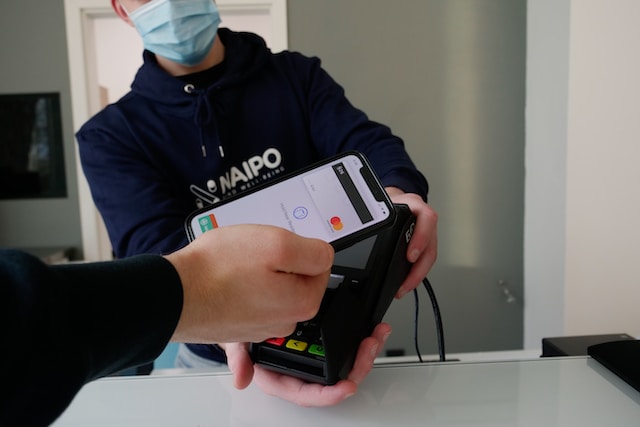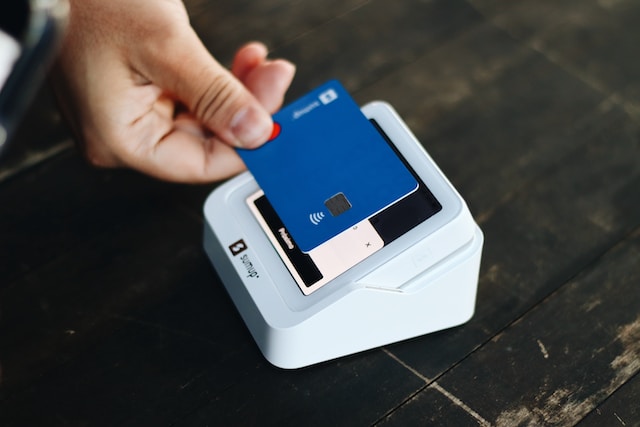The modern internet age started a while ago, but there are some complications and changes to the ways we run businesses that people are still catching up on. One of the more recent complications has been the advent of new digital payment methods and the fact that many customers are looking for very different payment methods than they used to.
One of the sources of confusion for many small business owners is the difference between merchant services and payment gateways and deciding which service is right for their business.
Here’s what you need to know about merchant services and how to pick the right merchant service to suit your business’s needs if you decide you want one.

What are merchant services?
Merchant services are a combination of a holding account for your business funds where transactions go before they go into other bank accounts and also the payment gateway systems that allow your customers to pay for the products and services you provide.
A payment gateway service on its own will still allow people to pay for your products and services and might be suitable for a sole proprietorship or other small companies that don’t need the other services or protections offered by a merchant service.
So, your merchant service is both the payment processing system you use every day and the intermediary between your customer and your business’s bank account or your personal bank account.
Why does your business need merchant services?
There are a few benefits for your business if you choose to work with a merchant services provider.
- They make it possible for your business to accept a wide range of payment methods.
- They hold on to funds until the transaction settlement date, which can help prevent unexpected fluctuations in your business’s account if a transaction doesn’t go through as expected.
- Many merchant services also provide additional services, like transaction tracking, customer relationship management systems, and access to more business data and analytics as part of the service.
Not all businesses need merchant services, and payment gateways like PayPal and Stripe can be a reasonable alternative for small businesses and sole proprietorships working in low-risk businesses.
However, once your business starts making more complex transactions, or if your business is in a higher risk position, like providing a subscription, event tickets, or processing large transactions, it’s generally better to have a merchant services account — even if you otherwise wouldn’t need one.
Most merchant services come with their own payment gateway, though not all of them do. However, all of them should give you access to a wide range of payment gateways that are compatible with the service, which means you can choose the option that works best for your business.
Types of merchant service providers and how to choose the right one for your business needs
There are several kinds of merchant services, and we’ve already talked about them as slightly different entities. Having some kind of merchant service is important for businesses of all sizes to help protect your personal information and bank account. However, different levels of service are suitable for different types of businesses.
Business size and specialization are only two of the primary categories here, though. You may need a more involved merchant service provider if the owner of the business has bad credit or if there are other factors potentially impacting the security and risk level of your business transactions.
If you aren’t sure what kind of merchant service provider you need, you can always consult with a financial advisor to get detailed advice that’s specific to your business’s situation.
Merchant account providers
Merchant account providers are usually the most popular option, but they aren’t suitable for every business. This level of merchant services tends to be more expensive than the others, but they are also the option that offers the most additional features and benefits to businesses.
Merchant account providers provide a Merchant ID and a merchant account that are exclusive to your business. This kind of service provider also often provides additional tools, like credit card terminals and point-of-sale systems.
Merchant account providers typically have relatively low transaction fees, while payment services providers and payment gateway providers both make most of their money from transaction fees. That said, you will pay some additional fees for this kind of provider. They typically charge a monthly minimum, billing fees, authorization fees, and customer service and maintenance fees on top of the transaction fee.
Payment services providers
Small businesses often choose payment services providers, or PSPs, for a couple of reasons. For one thing, because these providers have a smaller list of functions and benefits, they also have fewer fees associated with them. The total cost for a PSP is often lower than the total cost for merchant account holders, but the costs per transaction are often higher.
On average, payment service providers also have longer processing times, which can mean that your funds are slightly less liquid when you choose a PSP over a merchant account provider.
Payment gateway providers
Payment gateway providers are exclusively involved with processing and accepting payments, but they don’t provide an account or any of the other services that a merchant account services provider would give you. Your merchant account will always need a payment gateway provider, and you may or may not be able to choose which payment gateway provider you choose.
These service providers might not provide an account, but they do provide several additional security protections to businesses, including:
- Transaction security and cybersecurity protections
- Fraud prevention and detection services
- 24/7 customer support
- International payment processing
- Recurring billing
Every payment gateway provider is a little different, and not all of them will offer all the available services.
It is critical to choose a payment gateway service that is payment card industry (PCI) compliant to ensure that they offer the high-quality security services your business and customers deserve.
Point-of-sale (POS) systems
A point-of-sale system provides a combination of services like processing payments while also monitoring inventory, offering staff management options, accepting gift cards, and setting up loyalty programs.
In-person retail businesses often use point-of-sale systems to simplify management and get access to additional customer services without having to create and manage the systems themselves.
The various point-of-sale systems offer different benefits, so it’s important to look at what services they provide as well as what reports and data analytics services are included in the package. The more extensive the POS is, the larger the fee for using the system is likely to be.
Understanding the different types of credit card processing
One of the key factors in determining what kind of merchant services provider you need is figuring out what kinds of payment processing options you need.
All credit card payments go through three processes:
- Authorization
- Settlement
- Funding
These processes happen regardless of which payment method your customer uses, but there are some differences between these types of payments. Most importantly for business owners, the more of these payment options you can offer, the more customers will be willing and able to pay for your products and services.

Swipe
Swiping is simply running the card through the reader so it can grab the data it needs. Swiping a credit or debit card used to be the most common payment method, and most cards still have a backup swipe magnetic reader in case the other payment methods fail or wear out before the card expires.
However, newer methods of payment also offer security enhancements, which is why many payment terminals ask you to use the chip or tap methods of payment before accepting a swipe payment.
Chip
If you have a chip reader on your payment terminal, customers will be able to pay by inserting the card into the chip processor. It takes a little longer to accept the payment with a chip reader, but the transaction is also more secure. The difficulty with this kind of payment is that the transaction won’t register if customers remove their cards too early.
Tap
Tapping combines chip technology with near-field communication technologies to get the information needed from the card without having to insert the chip into the reader. This method is relatively fast, highly secure, and more sanitary than other options because of the limited contact between the card and the reader.
EMV
EMV stands for Europay, Mastercard, and Visa, which are the three companies that first started using and standardizing chip payments. EMV cards are significantly more secure because they produce a unique one-time code for every transaction, which provides an additional barrier to anyone wanting to access payment information during a transaction.
Common pricing models and fees from merchant services
There are four common pricing models that most merchant service account providers use to fund their services.
Interchange-plus pricing model
This type of pricing can also be called cost-plus pricing or pass-through pricing. This model is often more complicated than the other pricing models, but it can be more informative and generally the least costly option.
This method means that your merchant services provider will report the fees for each transaction, along with all of the monthly or annual charges on your statement. This is a good option because it means that you can directly see if you’re being overcharged and can often make it easier to contest an accidental overcharge by any of the financial institutions you work with.
Payment processing membership
Membership models replace the transparency of the interchange plus model with a flat membership fee. The advantage of the membership fee model is that you have a consistent flat rate charge for the services provided.
The downside of this method is that you always pay the same amount, even if you process fewer transactions in a month. You also have less information about the fees you’re being charged. So you may end up paying more than you would with a different payment plan, but you also have simpler billing overall.
Flat rate pricing
Flat rate pricing is increasingly common, but these flat rates are generally a lot more complex than they seem on the surface. Unfortunately, the flat rates can often help disguise higher charges for individual interactions. This option also doesn’t give you the information you would get from a more transparent model, so it has the same disadvantages of the membership model.
Tiered membership models
This is potentially the oldest pricing model for merchant service providers, but it can offer advantages.
Rather than offering all of their services in an all-or-nothing bundle where you might end up paying for services your business doesn’t need or use, tiered membership models offer a range of membership levels that all offer different services.
Some membership models will also include the option of paying for individual services as a membership upgrade, which can give you even more customization options. However, most will stick to the service tiers.
This model gives you more control over what you pay but still lacks transparency, which means you don’t have as much information or control over your payments.
The best merchant services of 2023
Here are some of the top-rated merchant services providers you can work with in 2023:
Shopify
Shopify is one of the top merchant services and platform providers for online businesses and brick-and-mortar businesses looking to offer an online store. It offers effective online credit card processing, and every transaction goes through fraud detection. Shopify also offers a point-of-sale system, inventory management, customer profiles, and a range of marketing and analytics options. In addition, since it doesn’t require long-term contracts, you have the flexibility to cancel or switch at any time.
Square
Square has become one of the most popular merchant services providers for in-person payments, online payments, and remote payments, all through the same system. It can also handle over-the-phone transactions. Square gives businesses the option of using their hardware as well, including terminals, magnetic stripe readers, mobile point-of-sale devices, and a standard cash register.
Stax
Stax services are often geared toward larger businesses since their monthly plans start at $99 per month. However, that rate also means that you have highly predictable costs on a payment processing platform that allows a wide variety of payment types. This option also allows invoicing in addition to direct payment processing, which can be important for some business types.
Fraud protection and security: How to find a safe merchant services provider
Fraud protection and transaction security are two of the most important services that any merchant services provider offers their customers. But it’s up to you to make sure you find a program that offers the level of security your business needs.
Here are some of the key services and protections your merchant services provider should offer:
Uptime and reliability
When your merchant services provider goes down, you often can’t accept payments at all. That means that uptime is a critical part of security. They need to perform updates, but they also need to be able to keep you up and running as much of the time as possible.
What kind of programs do they offer?
A merchant services provider should offer encryption or tokenization services at a minimum. Both of these options help protect individual transactions from being hacked or accessed by bad actors or bad actors using a transaction to access your system.
They should also provide security monitoring, let customers know as soon as they are aware of any potential breach, and be certified security compliant.
Additional services, like offering monetary breach assistance programs to any customers affected by a security breach, are a good way to assess how effective the service is.
There are always new risks out there, so you should also look for a system that stays on top of new potential risks.
Need more business tips and tricks?
If you’re looking for even more information about running a business and learning how to stay on top of growth and changes in market conditions, we can help. Keep an eye on Project Newport’s site for the latest news and business management innovations.

